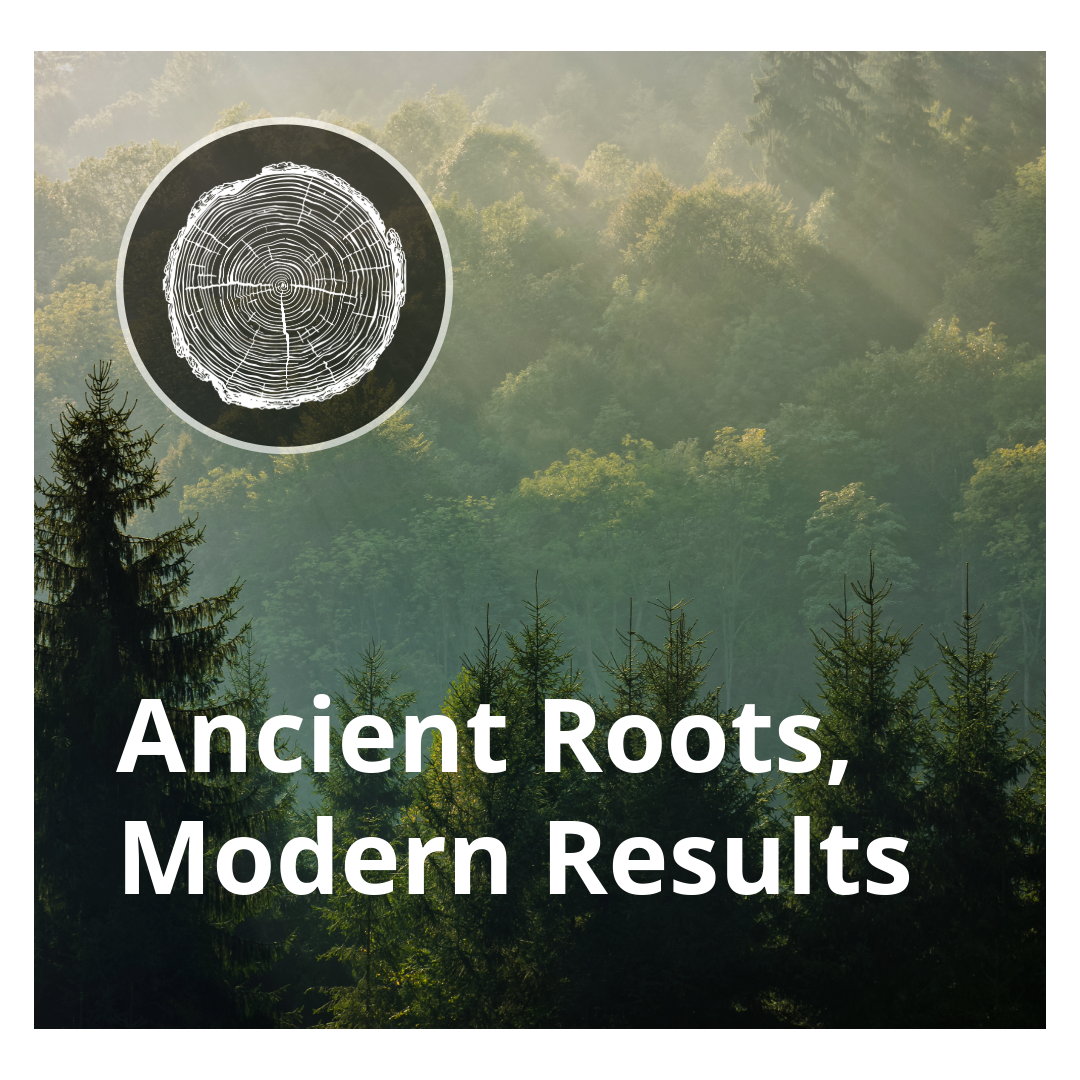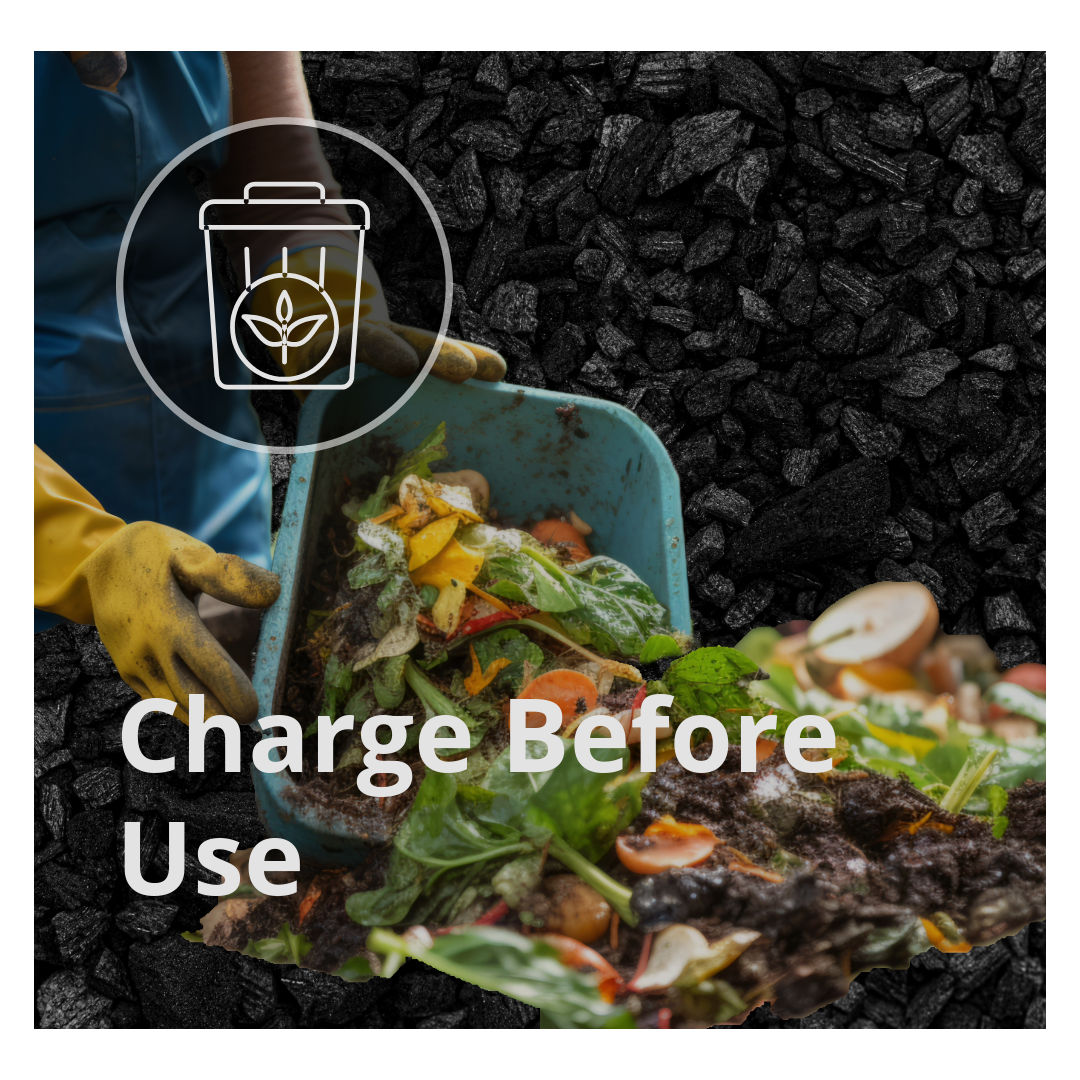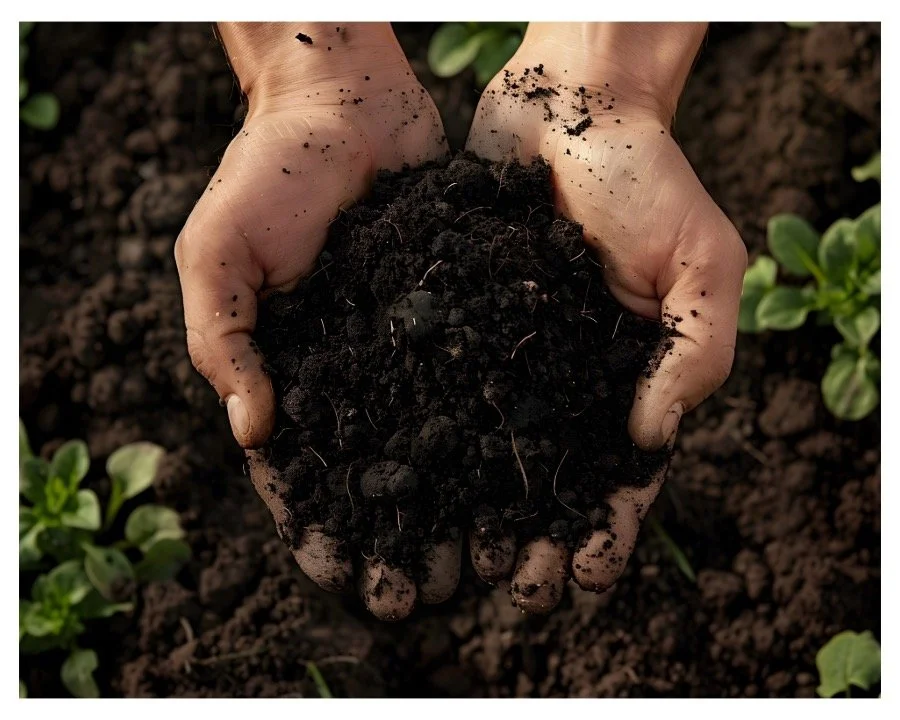
Biochar
Revive Your Roots with Biochar that Brings Soil to Life.

What is Biochar?
Biochar is a stable, carbon-rich material created by burning forestry byproducts like branches and chips in a low-oxygen environment. This ancient technique improves soil health, locks away carbon, and lasts for centuries.
Ancient Roots, Modern Uses
Biochar was first used in the Amazon to create rich, living soils. Today, we use that same wisdom—turning Utah’s forest byproducts into long-lasting, soil-building carbon.
How it’s Made
We burn our forests’ wildfire mitigation slash in a low-oxygen kiln, transforming it into porous charcoal. This stable carbon stores nutrients, supports microbes, and lasts for hundreds of years.
Charge Before Use
Uncharged biochar can steal nutrients from your soil. Charge it first by mixing with compost or fertilizer and letting it sit 2–4 weeks. Then it’s ready to feed your soil—not take from it.

Make a
Difference
Pre-charge biochar with compost or nutrients.
Mix into soil at 5–10%.
Add compost (1:1 with soil).
Soil + Biochar + Compost = Fertile Soil.

-
Cut Hazardous Trees
We remove hazardous trees as part of our wildfire mitigation efforts—clearing dead or dangerous wood that threatens homes and forest health.

-
Transport Materials
Once cut, wood is hauled to our yard where it’s staged, sorted, and prepared for burning or repurposing.

-
Burn Wood
We convert unusable wood into biochar using high-heat, low-oxygen burning. The material is doused, mixed, sifted, and tested for quality and consistency.

-
Available
Our finished biochar is available for pickup or delivery. Whether you're a homeowner, farmer, or land manager—we’ll get it to you.


Is BioChar Right for You?
7 Powerful Reasons People Are Turning to Biochar
Biochar offers long-term benefits for both individuals and communities. Here’s why landowners, farmers, and foresters across the world are putting it to use:
Soil Improvement
Biochar boosts soil structure, water retention, and microbial life—laying the foundation for healthier, more productive soil.Higher Crop Yields
It helps suppress soilborne diseases and improves plant health. Studies show increased yields in crops like tomatoes, peppers, basil, strawberries, and lettuce.Carbon Sequestration
Biochar locks carbon into the soil for centuries—removing it from the atmosphere and helping fight climate change.Cleaner Water
It filters pollutants from agricultural runoff, improving water quality while enhancing drainage and retention.Lower Greenhouse Emissions
By reducing methane and nitrous oxide from soils, biochar helps lower total greenhouse gas output from agriculture.Balanced Soil pH
Neutralizes acidic soils, making them more suitable for a wider range of crops and native plants.Smart Waste Use
Biochar transforms forestry and organic waste into a long-lasting soil amendment—closing the loop on land stewardship.
Whether you're restoring forest health, growing stronger crops, or improving your home garden—biochar makes a lasting impact.
Turning forest byproducts into something better.
We burn clean. We sift. We test. We give waste new purpose.

Your Personal Biochar Guide
Whether you're new to biochar or want to get the most out of your soil, we’ve created a simple, printable guide with everything you need to get started—application tips, mixing instructions, and how to choose the right type for your land.
Take it with you to the field or garden. This isn’t just a product—it’s a better way to grow.
FREE SAMPLE
Curious to see what biochar can do for your land or garden?
Fill out the form below, and we’ll send a free sample your way—no strings attached.








